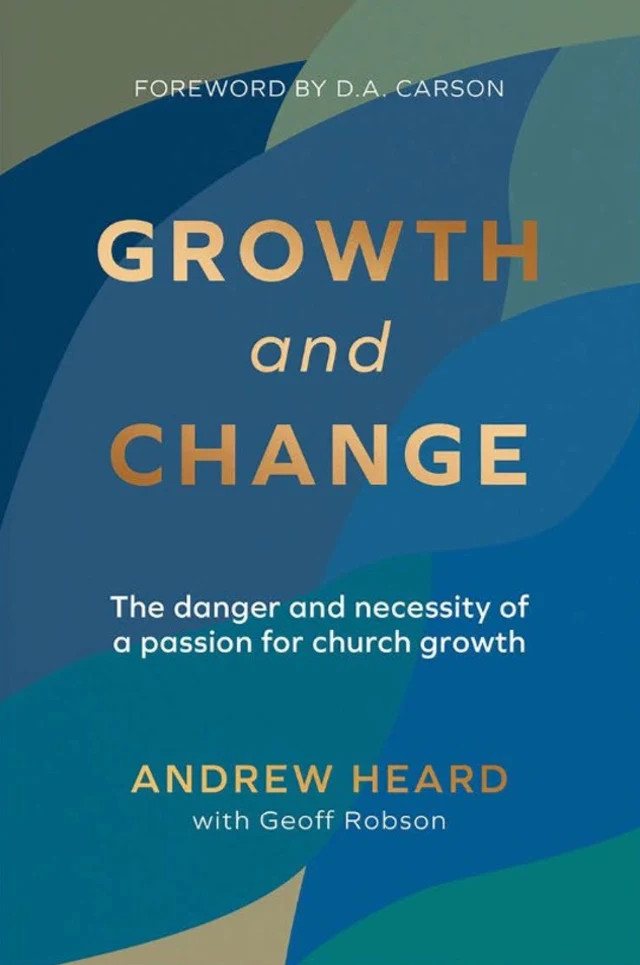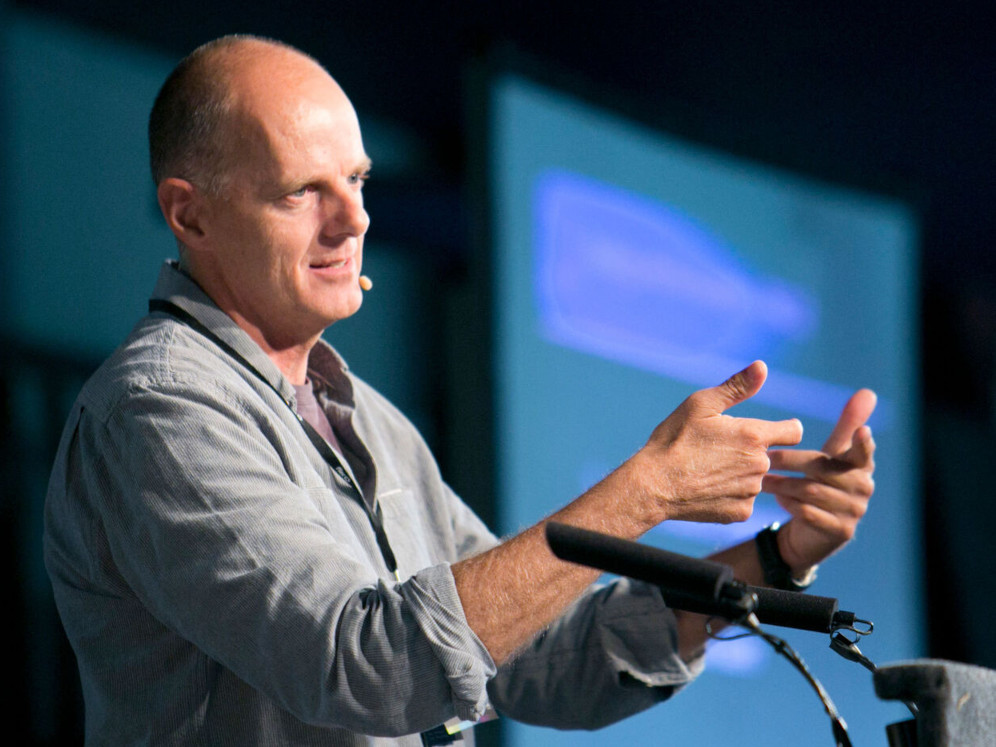It is likely that NSW Central Coast pastor Andrew Heard’s new book Growth and Change will be on many evangelical ministers reading list for 2024. But it’s a book with a real challenge – calling ministers to be prepared to change their practices for churches to become more effective. More effective at what? Conversion growth. Or saving people from God’s judgment.
In this interview he challenges me, the interviewer, who is not a minister, to have the same priority.
1) How would you answer your own question “What changes are needed in your life so that you might play your part in fulfilling Christ’s all-encompassing mission in all the world? What changes are needed in your church or ministry?”
Personally? For me and our church? Or generally, for everyone?
The challenge in sharing the changes i personally might need to make, or our church might need to make is that i’m not sure how useful they are for other people outside of our setting. Our changes are very particular to our situation. Which is the point of the question really. There’s no ‘one size fits all’ answer. This is the challenge of leadership. It might be possible to identify some broad changes many leaders in a particular context need to make (say in one denominational setting in one geographical context), and perhaps some broad changes to our style of ministry, but the answer will be very particular to a situation.
Over the years i’ve used the ‘head, heart, hand’ image to give some place holders to talk about the changes we might need to make. For many we need some changes to the way we think theologically. for instance, the way we’ve conceived ministry, the task of the pastor, the way God’s sovereignty works. what ‘discipling’ a person is. This is the head stuff. Then the heart. How much do we really see the need for gospel growth? how much does it matter to us? For others it’s the skills we bring to the task (the hand). the way we lead, the way we organise, delegate, and manage the work. It might be as simple as the way we run meetings. But it might be as big as the way we’ve thought about the organisational structure of church. It might be the way we’re running our church services, our small group ministries. For others it will be the need to change from rosters to team ministry. etc.
There are so many possibly ways we’re blocking the progress of our work. And until we see how much we bring to the problem – how much it’s what we do and how we do it – we just won’t do the necessary thinking work on ourselves and our ministries to even begin to see the changes needed.
The first big change therefore needed is owning our part. We do influence the outcomes. We therefore need to take a good hard look at what we’re doing and how we’re doing it.
2) “In some circles today, leaders and churches that embrace the importance of numbers are a little out of fashion. There seems to be a shift away from the centrality of making disciples to anything else.” Are numbers and conversion growth a measure of church health? How often does this apply?
Yes, a measure.
How often does this apply? Very often. Far more often than we’d like to think. But not so often that these two things are the absolute measure of all that is healthy.
We’re always looking for ways to duck responsibility. And we will use the extreme and unusual to justify the dismissal of numbers as ever saying anything. This is a dodge. that they may not be an absolute perfect indicator of church health all the time doesn’t mean they never say anything. When we have a large denomination with falling attendance numbers across the whole fellowship of churches (as is the case with most mainline denominations) in a context where many faithful Bible teaching churches are growing, we clearly have an indicator of a problem (and I’m not thinking FIEC in this! though that work is wonderfully encouraging).
3) “It is wrong to read the priority of the spiritual as exclusive of other needs such that we as individuals or our churches and ministries focus only on the spiritual and never pay any attention to the immediate, visible, physical needs of those around us. Those needs are still real, and they are still very important.” How does that affect the work of church leader and how they teach?
An interesting question to ask!
As you know, questions rarely come out of the blue. They emerge from a context. And so they’re windows into the heart of the person asking. That you think to ask such a thing in the context of a book that is driving towards the overwhelming priority, urgency, importance of winning people from hell is interesting.
Now, it might just be that there is an important piece to add to all that I’ve said. Sure. but! it might just be that there is a direction of your heart that triggers such a question. If i had the chance i’d love to dig a little into your own heart. What is it that really energises you as a follower of Christ? Is it the saving of sinners from hell? the great need of millions around us to be saved? or is it the care of the visibly hurting? Now of course, as I argue, it isn’t a simple either or. but! it can be for many.
One of the things i’ve discerned over the years is how easy it is for the visible, obvious, immediately pressing needs of people around us to trigger our sense of compassion such that their needs dominate our concerns. We agree with the importance of saving people. But it sits behind other things in our list of priorities.
The challenge of course is that the invisible need, the need that is hidden, is far greater than any other need. If we could just see the soul of a fallen human, if we could see how dark it is, how hostile to the true and living God, how bound to satan and so captive to an eternal judgement then we would be more horrified by that than any visible physical illness or need. We’d shift our concerns and priorities dramatically. We’d cry out to God more urgently for the lostness of our country; we’d urge our pastors and preachers to push us to be more about the work of seeking and saving the lost; we’d give more of our time and money to gospel preaching mission, etc, etc.
But our problem is we can’t see these invisible things. They’re only accessible by faith. And so few people see them or feel them. and so, objectively, we have churches that are in decline, with no one converted for years. And in those churches there are many who feel the visible needs. they speak to them with great urgency. But i want to insist that our greatest need at present is to recapture our awareness of the lostness of the lost. What we deeply need is to raise up a new generation of pastors/leaders who see what can’t be seen and so speak with greater urgency and passion about the need to be about making disciples, whilst not neglecting all the other things that matter.
4) “We so easily fall into ruts in Christian ministry.” What ruts?
Sorry! but there are many. And the ‘head heart hand’ image gives us the place holders again. There are the ruts of the way many pastors and churches think about the ministry – it is just turn up and do church without thought as to whether our services are making a difference. There are the ruts of ’this worldliness’ where our hearts really are at home in this world and don’t hunger and thirst for the return of Christ. There are the ruts of bad organisation in church life – we either don’t think getting organised matters (or is even christian) or we’re so consumed by responding to the urgent we don’t stop to work out how to actually proactively build a more effective ministry. And so on.
5) In Growth and Change there is this story: “In one instance, a godly pastor of an established church took his team of elders to visit the newly planted church. He sat his leaders in the building and drew their attention to what was happening: ‘This church is seeing converts, but we aren’t. They’re preaching the same gospel as us in the exact same street as us. Why are they seeing fruit while we aren’t?’ It was a powerful moment of self-reflection, of asking hard questions, and of taking responsibility for the proper relationship between inputs and outputs. It empowered change.”
What sort of changes do you expect might have resulted?
You keep asking the same question! it’s such a big question. But, perhaps it is possible to say that the first big change would be a shift from thinking that the problem is simply the soil. I’d hope that the elders started to change the way they thought about the people around them (head stuff). There are more people out there ready to respond than they might have previously thought. I might dare suggest that this is one of the most foundational changes needed. Whilst ever we keep thinking that the lack of conversion growth is just the soil we won’t ever look at what we’re doing and how we’re doing it to see where else we need to change.
I would then hope that they changed from being defensive and protective; that they might open themselves up to further reflection, and perhaps a voice from outside.
As the Reach Australia work comes alongside various churches we keep finding that the changes needed are many and varied. The head, heart and hand thing again.
6) Is there any other question you would like asked?
What is your hope from the this book? What difference do you hope it might make?
I hope it would bring about a significant shift in the way we think, feel and act as leaders and churches such that God might bring about a great new turning towards himself across our whole country. That’s my hope; that we might reach Australia for Christ and see many, many more people saved and deepened in their faith; to the glory of God.

Growth and Change: The danger and necessity of a passion for church growth Andrew Heard with Geoff Robson, Matthias Media, 2024, $24.99 Available from the Wandering Bookseller
Image: Andrew heard
Source: FIEC UK

